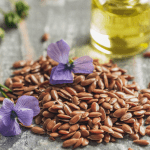HRT and its Risks
Hormone Replacement Therapy (HRT) has been a common treatment for the symptoms of menopause, which can include hot flashes, night sweats, mood swings, and vaginal dryness. While HRT can be effective in alleviating these symptoms, it is not without risks. Studies have linked HRT to an increased risk of breast cancer, heart disease, stroke, and blood clots. The Women’s Health Initiative’s findings in the early 2000s led to a significant decrease in its use as the risks became more apparent. As a result, many women and healthcare providers have been seeking alternative methods to manage menopausal symptoms that are not as “controversial” as HRT.
The Rise of Holistic and Home Remedies
In the wake of concerns about HRT, there has been a growing interest in holistic and home remedies for menopause symptom relief. These alternatives range from dietary adjustments and physical activity to stress management techniques and the use of supplements. While some of these remedies are supported by clinical research, others are based on anecdotal evidence. The appeal of these methods lies in their natural approach and the perception that they may have fewer side effects compared to conventional HRT. However, the effectiveness and safety of these alternatives can vary, and it is essential to approach them with a critical eye.
Importance of Consulting Healthcare Providers
Before embarking on any alternative treatments for menopause symptoms, it is crucial to consult with healthcare providers. They can offer guidance on effective strategies and help navigate the myriad of options available. Healthcare providers can also provide information on potential side effects and interactions with other medications. Given that the regulation of supplements is less stringent than prescription drugs, professional advice is invaluable in ensuring safety and efficacy. Additionally, healthcare providers can help tailor a treatment plan that considers the individual’s health history and personal preferences, leading to a more integrated and personalized approach to managing menopause symptoms.
Dietary Adjustments for Menopause Symptom Relief
Identifying and Managing Trigger Foods
During perimenopause, certain foods can exacerbate symptoms such as irritability, energy depletion, and hot flashes. Refined sugars and processed foods may intensify these discomforts, while dehydration can increase the frequency of hot flashes. High sodium intake can also lead to bloating. Identifying personal trigger foods and reducing their consumption is crucial. Limiting caffeine, alcohol, and spicy foods may help manage hot flashes, as these can act as stimulants and worsen symptoms. Conversely, regular exercise can stabilize blood sugar levels, boost energy, and improve mood.
Beneficial Nutrients: Calcium and Vitamin D
As women age, the risk of osteoporosis escalates. Calcium and Vitamin D are pivotal in maintaining bone health, with Vitamin D facilitating calcium absorption. A diet rich in these nutrients not only strengthens bones but can also elevate mood. Foods high in calcium include dairy products, nuts, seeds, and leafy greens. For Vitamin D, fatty fish and fortified foods are excellent sources. Supplements may be considered if dietary intake is insufficient, but it’s essential to consult healthcare providers before starting any supplementation.
The Debate Over Soy and Phytoestrogens
The role of soy and phytoestrogens in managing menopause symptoms is contentious. Phytoestrogens, plant-derived estrogens found in foods like tofu, edamame, and soy milk, may mimic the body’s estrogen and potentially alleviate menopausal discomforts. However, research on their effectiveness is mixed, and some studies suggest a link between high soy consumption and reduced menopause symptoms, while others do not. Given the conflicting evidence, women may choose to cautiously include soy in their diets or seek alternative remedies for symptom relief.
By the way, something for you, a little gift!!!
I am just in the middle of publishing my book. It’s about How women can balance their hormones. One part is about food and diet, of course.
Follow this link and enter your email.
I will send you this part of the book for free once the book is published. It has many concrete, practical tips and recipes and will help you feel better during menopause or times of Big hormonal fluctuations.
Annette, Damiva Lead for Health & Wellness

Exercise and Physical Activity Benefits
Types of Exercise and Their Menopause Benefits
Exercise is a cornerstone of health, particularly during menopause when a woman’s risk of osteoporosis, heart disease, and weight gain increases. Different types of exercise offer specific benefits for menopausal women:
- Aerobic Exercise: Activities like running, cycling, or brisk walking improve cardiovascular health and can help manage weight. Aerobic exercise also releases endorphins, which can boost mood and reduce feelings of depression that may accompany menopause. Rebounding is also great!
- Weight-bearing Exercise: Exercises such as tennis, dancing, or using a stair-climber machine help maintain bone density, which is crucial for preventing osteoporosis.
- Strength Training: Using free weights or resistance bands builds muscle mass, which can increase metabolism and aid in weight management. Strength training is also linked to reduced anxiety and better mental health.
- Flexibility Exercises: Practices like yoga and Pilates improve flexibility, coordination, and balance, reducing the risk of falls and potentially helping to prevent arthritis.
Exercise Frequency and Intensity Recommendations
For menopausal women, the frequency and intensity of exercise are key components of an effective fitness regimen. The general recommendations include:
- Engaging in at least 150 minutes of moderate-intensity aerobic activity per week, which can be broken down into 30-minute sessions over five days.
- Incorporating strength training exercises at least two days per week, focusing on all major muscle groups.
- Adding flexibility and balance exercises to the routine, which can be integrated into daily activities or structured workout sessions.
It’s important to start at a comfortable level and gradually increase intensity to avoid injury. Women new to exercise should consult with a healthcare provider before starting a new workout program. Additionally, finding activities that are enjoyable can help sustain long-term commitment to regular exercise.
Note: While exercise can alleviate many menopause symptoms, it’s not a substitute for medical treatment. Women experiencing severe symptoms should consult a healthcare provider for a comprehensive treatment plan.
Stress Management Techniques
Understanding the Impact of Stress on Menopause
Menopause is a significant transition in a woman’s life that can be accompanied by a variety of symptoms, including hot flashes, night sweats, and mood swings. Stress can exacerbate these symptoms, making them more difficult to manage. The adrenal glands, which are responsible for the production of stress hormones such as adrenaline, also become a source of estrogen production during menopause. When these glands are overstimulated by chronic stress, their function can be compromised, leading to further imbalances in estrogen levels and intensifying menopausal symptoms such as weight gain and sleep disturbances.
Understanding the relationship between stress and menopause is crucial for developing effective management strategies. By recognizing the triggers and symptoms of stress, women can take proactive steps to mitigate its effects and improve their overall well-being during this transitional period.
Mindfulness Meditation and CBT
Mindfulness meditation is a powerful tool for managing stress during menopause. This practice involves focusing on the present moment and accepting it without judgment. Regular mindfulness meditation can lead to improved coping mechanisms for hot flashes and night sweats, as well as a reduction in the psychological impact of menopausal symptoms.
Cognitive Behavioral Therapy (CBT), on the other hand, is a form of psychotherapy that helps individuals reframe negative thought patterns into more positive ones. CBT has been shown to improve mood and sleep quality among menopausal women. It works by challenging and changing unhelpful cognitive distortions and behaviors, improving emotional regulation, and developing personal coping strategies that target solving current problems.
Both mindfulness meditation and CBT are non-pharmacological interventions that can be highly effective in stress management. They offer a holistic approach to dealing with the psychological aspects of menopause, providing women with skills that can help them navigate this phase with greater ease and comfort.
It is important to note that while these techniques can be very beneficial, they are most effective when practiced consistently and, ideally, under the guidance of a trained professional. Women considering these options should consult with healthcare providers to ensure these methods are appropriate for their individual circumstances.

Bette 100% All-Natural Relaxing Lavender Body Lotion.
Chemical-Free
Your relaxing night time body moisturizer to leave the day’s stress behind. Decompress and wish your body good night with the calming scent of lavender.
Lifestyle Changes for Symptom Management
Environmental and Clothing Considerations
For many women experiencing menopause, environmental factors and clothing choices can significantly impact comfort levels. Keeping your living and workspaces cool and well-ventilated is crucial, as this can help manage the sudden warmth of hot flashes. Proper air-conditioning and good ventilation are not just about comfort but can be a quick remedy during an intense episode.
When it comes to clothing, the materials and fit matter. Loose-fitting clothes made from natural fibers like cotton allow the skin to breathe and can be easily adjusted or removed during a hot flash. Layering clothing is also a practical approach, providing the flexibility to remove layers to regulate body temperature swiftly. Additionally, wearing light-colored clothes can help reflect heat rather than absorb it, which is beneficial when spending time outdoors.
Vaginal Health and Smoking Cessation
Vaginal health is an important aspect of managing menopause symptoms. Vaginal dryness can be addressed by using vaginal moisturizers, which are designed to provide relief from dryness, itching, and irritation throughout the day. For sexual activity, vaginal lubricants can be used to add moisture and reduce discomfort during intercourse.
Smoking cessation is another critical lifestyle change that can have a profound impact on menopausal symptoms. Smoking has been linked to an increase in hot flashes and can also affect hormone levels. Quitting smoking is not only beneficial for managing menopause symptoms but also improves overall health, reducing the risk of heart disease, stroke, and a variety of cancers. Support groups, nicotine replacement therapies, and consultation with healthcare providers can offer assistance to those looking to quit.
By making these lifestyle adjustments, women can find relief from menopause symptoms and improve their quality of life during this transitional phase.

Supplements for Menopause Symptom Management
Key Vitamins and Nutrients
During menopause, certain vitamins and nutrients become particularly important for managing symptoms and maintaining health. B vitamins are crucial for energy regulation and cell production, with folic acid potentially reducing the severity of hot flashes. A daily intake of 1 milligram of folic acid may be beneficial. Vitamin E is known for its antioxidant properties and may reduce hot flashes by up to 40 percent with doses up to 360 mg per day. Vitamin D is essential for bone health and mood regulation, with a recommended daily dose of 10 to 20 micrograms to lower osteoporosis risk. Additionally, Omega-3 fatty acids can aid in body lubrication, helping with vaginal dryness, and may improve depression when used alongside SSRIs.
Herbal Supplements and Their Efficacy
Herbal supplements are a popular choice for managing menopause symptoms, though their effectiveness varies. Black cohosh may help balance hormones, with a suggested dose of 40 mg per day to decrease hot flashes. St. John’s wort and valerian root are known for improving sleep quality, while red clover and sage contain isoflavones that may act like estrogen in the body. Maca and licorice are also considered for their hormone-balancing effects. However, it’s important to note that the FDA does not regulate these supplements, and research on their use is often limited.
Safety and Regulation of Supplements
When considering supplements for menopause symptom management, safety and regulation are paramount. Supplements are not regulated by the U.S. Food and Drug Administration (FDA) in the same way as medications, which means quality and potency can vary widely. It’s essential to purchase supplements from reputable sources and consult healthcare providers before starting any new supplement regimen. They can provide guidance on appropriate dosages, potential side effects, and interactions with other medications. Remember that while supplements can offer symptom relief, they should be part of a comprehensive approach to menopause management that includes diet, exercise, and lifestyle modifications.
Do you know the three main ways that your body gets in touch with harmful chemicals with everyday products? Knowledge is Power!
The Ultimate Detox Guide will tell you how to lower your exposure to harmful chemicals!

Alternative Therapies and Clinical Treatments
Acupuncture and Tai Chi
Acupuncture and Tai Chi are traditional Chinese practices that have been found to offer relief for menopause symptoms. Acupuncture involves the insertion of fine needles into specific points on the body to balance energy flow. Studies have shown that acupuncture can decrease the intensity and frequency of hot flashes in menopausal individuals. Additionally, it may also aid in improving sleep quality and reducing anxiety.
Tai Chi, on the other hand, is a form of exercise that combines slow, deliberate movements with deep breathing and meditation. Practicing Tai Chi has been associated with a reduction in night sweats and hot flashes when performed regularly. It is recommended to engage in Tai Chi sessions for at least one hour, twice per week, to experience menopause symptom relief.
Medications Beyond HRT
For those seeking alternatives to hormone replacement therapy (HRT), there are several medication options that can help manage menopause symptoms. Antidepressants, particularly SSRIs and SNRIs, can be prescribed to treat hot flashes and other symptoms. Clonidine, a medication typically used to treat high blood pressure, can also be effective in reducing hot flashes and night sweats. Another option is Gabapentin, commonly used for seizure disorders and pain relief, which may also help reduce hot flashes.
Bioidentical Hormones: An Overview
Bioidentical hormones are hormones that are chemically identical to those the human body naturally produces. They are often marketed as being more “natural” and safer than traditional HRT, but it is important to note that not all bioidentical hormones are FDA-approved. The efficacy and safety of bioidentical hormones are still being studied, and they may pose long-term health risks that are not yet fully understood. Bioidentical hormones come in various forms, including pills, patches, and creams, and should only be used under the guidance of a healthcare provider.
It is crucial for individuals considering any of the above therapies to work closely with a healthcare provider to create a personalized treatment plan. This ensures an assessment of individual benefits and risks, as well as advice on dosage and potential interactions with other medications.











